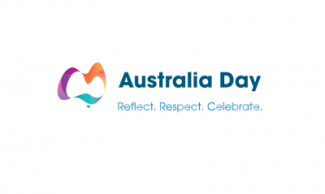As this blog is published, Australians are getting ready for a short mid-week break as we pause to observe our national day, Australia Day, held each year on January 26th.
As most of our audience are from elsewhere, I thought a short primer on Australia Day might be of some interest.
National Days can be complex things, and not just in Australia. They are usually promoted as commemorating the day a nation ‘came of age’. A day of celebration, marked by both orchestrated and spontaneous expressions of national pride.
But who decides which day is most worthy of celebration? And what happens when it’s…complicated?
A Short History of Australia Day
To understand what Australia Day is, let’s start by explaining what it’s not.
- It’s not a celebration of our Federation, the day our 6 states, originally self-governing British colonies, united to form the Commonwealth of Australia.
That occurred on 1-Jan-1901. We had some pretty low-key Centenary of Federation events in 2001, but making this our official National Day would be complicated by the fact that New Year’s Day is already a public holiday, and you can’t have two on the same day!
- It’s not a celebration of the birth of the Australian Republic, the day we finally threw off the last vestiges of colonialism and chose “a Resident for President”.
Why not? Because, somewhat amazingly, it hasn’t happened yet! A referendum in 1999 failed, mainly due to political shenanigans and disputes over the model, and most of the population then lost interest.
- It’s not a celebration of Reconciliation Day, when we formally acknowledged the devastating impact that colonisation had on our indigenous population, and they finally took their rightful place at the heart of our national story.
Again, it’s yet to happen. Despite a marked increase in public awareness and debate over recent years, there remains no popular or political consensus on what form this should take.
So what does the 26th of January represent?
It marks the day in 1788 that the ‘First Fleet’ of 11 British ships, sent to establish a penal colony, relocated from Botany Bay to Sydney Cove. Governor Phillip and a few of his men rowed ashore, cleared some ground for the new encampment that would later become the city of Sydney, and raised a British flag.
All in all, it’s a curious choice of date to pin our National Day onto.
- The colony of New South Wales wasn’t officially declared until a couple of weeks later.
- The nation of Australia didn’t actually exist until well over a century later.
- The term Australia Day wasn’t universally adopted until 1935,
- January 26th has only been nationally recognised as a public holiday since 1994.
Australia Day in Black & White
What January 26 represents to Indigenous Australians is far more complex.
- For many, it’s referred to as “Invasion Day”, hardly a day to celebrate.
- For others, it’s “Survival Day”, a day of pride that, against great odds, the oldest continuously surviving culture on the planet lives on.
My earliest memories of Australia Day celebrations revolve around watching re-enactments, on black and white TV, of boats rowing ashore and a Union Jack being raised by actors in full colonial costume. The Aboriginal population, if represented at all, would have been tokenistic and compliant.
1988 saw the Australian Bicentennial celebrations, the centerpiece of which was a fleet of tall ships sailing through the heads of Sydney Harbour, commemorating the arrival of the First Fleet. I watched this spectacle from a friend’s verandah, enjoying a drink or three in the summer sunshine.
I was only vaguely aware that, just a mile or two away, over 40,000 people were marching in our largest protests since the Vietnam war.
Searching for Common Ground
Recent years have seen the emergence of a “Change the Date” movement, based on the premise that, if you are looking for a day of national unity, abandoning such a provocative date might be a good place to start. This has, predictably, been embraced by many progressives and rejected out of hand by many conservatives.
Another challenge is for Australia Day to be relevant to what is now an extremely diverse population. We have a higher proportion of immigrants than any other large country on Earth, coming from all points of the globe, and many of them don’t relate to the old, UK-centric, view of our history.
The current organizers of Australia Day seem to have taken this challenge on board. Under the banner of “Reflect. Respect. Celebrate.” there is an intent and invitation to reflect on our contentious foundation story, respect all who call Australia home - whether for months or millennia - and seek common ground for understanding, then cause for celebration.
As they put it:
This is the Story of Australia - the story of an extraordinary nation.
The Story begins 60,000 years ago. New chapters are written every day.
On Australia Day, we reflect on our history, its highs and its lows.
We respect the stories of others.
And we celebrate our nation, its achievements and most of all, its people.
We're all part of the story.

